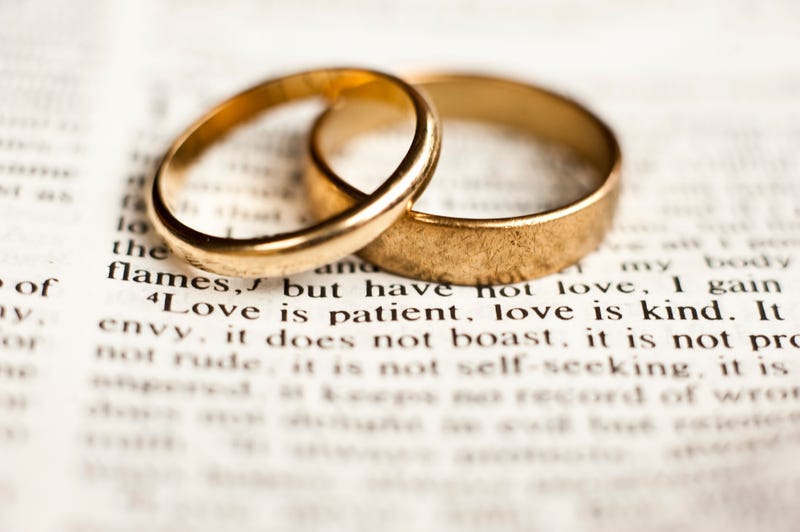
Valentine’s Day has been a difficult holiday for Lori Long of Salinas, Calif., for the past five years, and this year was no different.
Long, 50, would like to be married to her fiancé, Mark Contreras, 51. However, her much-needed disability benefits would evaporate after their wedding. So, the couple is trying to change the system, according to KAZU.
“I thought, how could a change in marital status change my disability status? But it did,” said Long.
Long has dealt with an autoimmune disorder that causes painful fractures since her childhood. She’s had multiple surgeries and has needed to use a wheelchair and a cane. Typically, her condition results in at least one hospital visit that costs $50,000 or more each year.
Along with other people who have disabilities that began before they turned 22 and have a have a parent who died or is disabled or retired, Long is considered a “Disabled Adult Child” by the Social Security Administration. This designation makes her eligible for federal benefits on her parent’s earnings record for Social Security.
However, Long learned shortly after her engagement that she would lose these federal disability benefits and Medicare if she said “I do” to Contreras. Under the existing law, people with her designation no longer receive benefits if their spouse is on social security, under the assumption that their spouse can afford to cover the disabled person’s medical expenses.
“I don't think 50 years ago people would be thinking about people with disabilities getting married, whereas now that's just a perfectly normal, expected part of life for a lot of people,” said Bethany Lilly, a disability rights advocate. “But these systems haven’t been updated, and so they’re still penalizing people.”
In Long’s case, her part-time retail job and Contreras’ full-time work at a non-profit would not cover her medical needs.
“In today's world, our medicine, for profit, is very expensive and it's complicated,” Long said. “And it’s not 1950 anymore. We mostly live in a two-income society.”
Despite the bleak outlook for their marriage plans, the couple has decided to fight.
“I told her, ‘we'll figure this out,’” Contreras said.
“We'll get married. I don't know when or where, but we'll figure it out.”
Long began advocating for herself with a petition called Lori’s Law and began working with her congressman, U.S. Representative Jimmy Panetta (D-CA).
“It simply states that a disabled person (specifically someone disabled before the age of 22 thus receiving SSDI on a parent’s work record) shall be allowed to marry an able bodied individual and keep their disability benefits including Medicare,” according to a summary of the Lori’s Law petition.
Panetta introduced the Marriage Equality for Disabled Adults Act in the House last month. This legislation would ensure that the roughly one million people who are considered disabled adult children wouldn’t lose their federal disability benefits if they got married.
“We just feel that's an antiquated and borderline cruel law that should be changed,” Panetta said.
Apart from Panetta’s proposal, another bill introduced in the Senate by Senator Sherrod Brown (D-OH) last June would increase the benefit level and end the marriage penalty for people on Supplemental Security Income, which supports eight million low-income seniors and people with disabilities. Currently, married couples are docked 25 percent of their SSI benefits.
“It makes no sense from a logic viewpoint,” Brown said. “It makes no sense from a moral viewpoint. It makes no sense from a religious viewpoint.”
Democratic Senator Elizabeth Warren of Massachusetts also recently called for passage of the SSI Reformation Act of 2021.
“There are many people with disabilities hurting right now and we are tired of being third and fourth-rate citizens. We should be all first-class citizens,” said Jason Endres a Wisconsin man impacted by the SSI cut.
As lawmakers consider the two bills, Long and Contreras have vowed to keep fighting. She thinks their loving energy will prove to be “unstoppable.”
“For me, marriage matters because it's a fundamental right,” Long said. “Marriage matters because I would get to celebrate our love with friends and family. I would get to participate in a societal norm that everyone else takes for granted.”


